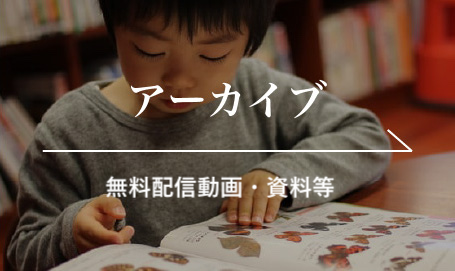< VOLUME 54, No.1 >
Shigemi Kato. A Study on the Design Process of “Hoiku Yoryo” (National Curriculum Standards for Early Childhood Education)
Research on Early Childhood Care and Education in Japan, 2016, 54(1), 6-17.
The aim of this paper is to elucidate the design process of “Hoiku Yoryo” (National Curriculum Standards for Early Childhood Education). It was established as Japan’s first “Course of study for early childhood education”. Previous research on this subject was based primarily on the recollections of participants, and not on document-ed data. Therefore this study reveals the historical significance of “Hoiku Yoryo”, using by GHQ/SCAP (CI&E) Conference Reports. As a result of this study the whole design process of “Hoiku Yoryo” has become clear. It was not only designed to set “national curriculum standards”, it was also an “academic educational book”, expected to function as a set of guidelines.
Keywords: Hoiku Yoryo (National Curriculum Standards for Early Childhood Education), Occupied Ja-pan, Civil Information and Education Section, Conference Report, Helen Heffernan
—————–
Kazue Nakashima. Nurture and Education in McMillan’s Nursery School in Early 20th Century England.
Research on Early Childhood Care and Education in Japan, 2016, 54(1), 18-29.
McMillan’s nursery school was designed to provide children from poorer families with health care and developmental support as well as an education in the early 20th century. This system included helping educate the parents. As a result, their chilren’s physical, intellectual, and spiritual development drastically improved. In addition, the parents came to take greater responsibility for the welfare of their children. The results of MacMillan’s work provide us implications for contemporary nursery education and care here in Japan: nurture in the school, child care and family support, and the school as the place for social reform. Our schools need well-trained teachers with the right working conditions, parents’ education, and financial backing to child-care facilities.
Keywords: nursery school, Margaret McMillan, nurture, poverty of child, support of child care
—————–
Ryutaro Nishi. The Process of Reflection in Makoto Tsumori’s Childcare Thought:The Encounter with
Children as a Starting Point.
Research on Early Childhood Care and Education in Japan, 2016, 54(1), 30∸41.
Reflection is the central concept in Makoto Tsumori’s childcare thought. Recently many authors have referred to his concept of reflection, but they tend to consider it in a rather technical way. I explore aspects of Tsumori’s reflection that involve internal processes, based on inquiry into not only the theoretical but also the practical side of his thought included in his case study. The following aspects represent characteristics of his concept of reflection: seeing children’s action as expression, active and holistic commitment of nursery school teachers, the process of incubation, and the relationship between teachers and children. About the subjective interpretation in the reflection, I showed the need to build the methodology and the phronesis of case interpretation.
Keywords: reflection, Makoto Tsumori’s childcare thought, internal processes, commitment, the methodol-ogy and the phronesis of interpretation
—————–
Hisami Haraguchi. Subjective Experiences of Preschool Teachers in Daily Education and Care:Focusing on Subjective Experience.
Research on Early Childhood Care and Education in Japan, 2016, 54(1), 42-53.
This study aims to clarify the subjective experiences of preschool teachers involved in daily education and care of young children. I interviewed 8 relatively inexperienced preschool teachers. Qualitative data was analyzed using the ‘Modified Grounded Theory Approach’. Results showed that preschool teachers experienced cyclically two contrasting emotions, “enjoying time with children” and “struggling to cope with lonelinessin class”. This study shows that “the heart in education and care” of preschool teachers, love for children and zeal in childcare, have good/bad effects on their subjective experiences. These findings suggest that psychological support for preschool teacher is also a necessary part of a healthy school.
Keywords: preschool teacher, subjective experience, cyclic process, psychological support for preschool teacher
—————–
Yumi Kato and Mikayo Ando. Impacts of Depression at Work Among Nursery Teachers:Focus on Years of
Experience, Sense of Coherence, and Coping Skills.
Research on Early Childhood Care and Education in Japan, 2016, 54(1), 54-66.
The purpose of this study was to examine the impact of years of experience,work conditions,coping skills,Sense of Coherence, and depression at work among nursery teachers. Two hundred and ninety-two nursery teachers completed self-assessment questionnaires such as “CES-D Scale”, “Kiss-18”, “TAC-24”, “SOC 3-UTHS” in 2012. The results showed that work conditions such as having a full time job or part time job, and being a classroom teacher or not, were not associated with depression. Years of experience and Sense of Coherence were associated with depression through coping skills such as “problem solving skill” and “positive interpretation and distraction” depression.
Keywords: nursery teachers, depression, Sense of Coherence (SOC), coping skills, years of experience
—————–
Yoko Kiso. The Relationship between Day Nursery Teachers’ Psychological Burdens and Bringing up Children with Characteristics of Developmental Disorders or Supporting Their Parents:A Cross-Sectional Survey Using The Burnout Scale.
Research on Early Childhood Care and Education in Japan, 2016, 54(1), 67-78.
This study examines factors associated with day nursery teachers’ psychological burdens in bringing up children with characteristics of developmental disorders. A survey was conducted in 84 nurseries and the data from 342 teachers were used in the analyses. Three scales were created to measure degrees of 1) behavioral characters of those children, 2) difficulties in informing the parents about their children’s problems, and 3) cooperation in/out of schools. Multiple-liner regression analysis was given. The results showed the “emotional exhaustion” and “depersonalization” scores were significantly correlated with the variable of difficulties in informing the parents about their children’s problems, not with the variable of behavioral characters. The findings suggest that informing parents about their children’s problems is far more stressful for the teachers than caring for the children themselves.
Keywords: children with characteristics of developmental disorders, day nursery teachers, psychological bur-dens,supports for parents, quantitative research
—————–









